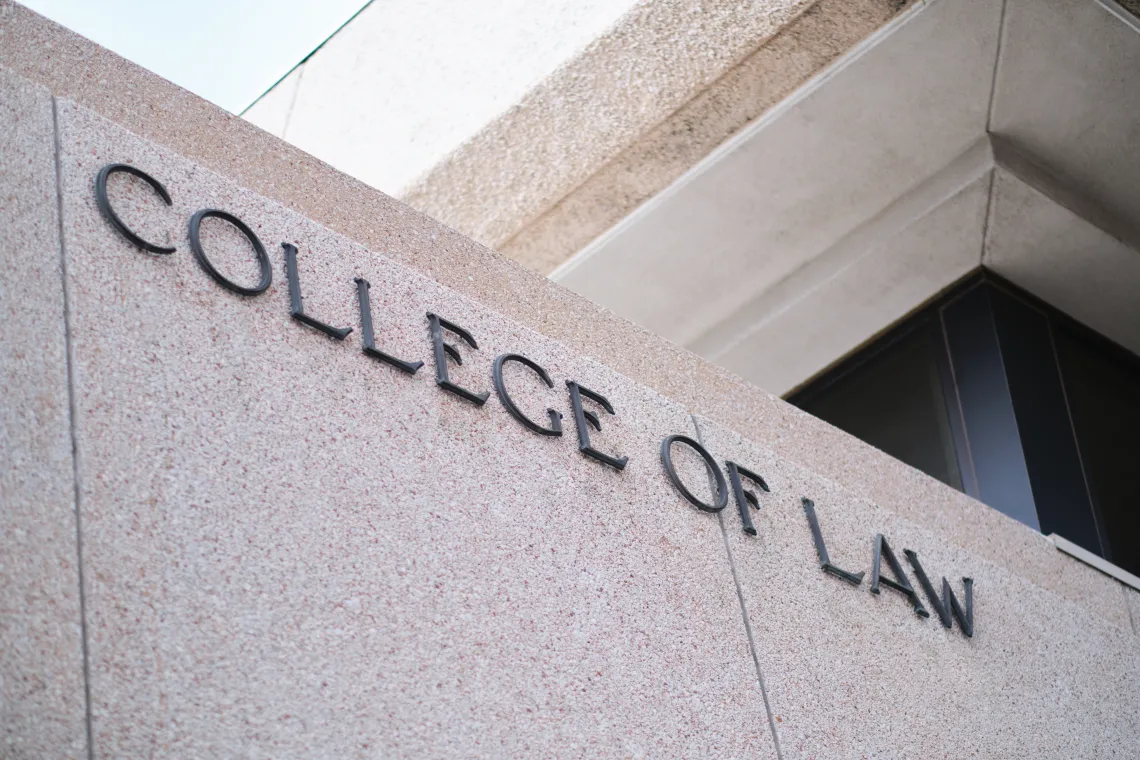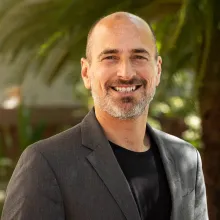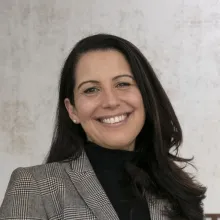University of Arizona Law Announces 2023 Faculty Research Award Winners

The University of Arizona James E. Rogers College of Law has named the 2023 Faculty Research Award winners. The awards highlight the scholarly achievement of University of Arizona Law faculty. This year’s winners are:
Distinguished Legal Scholar Award: Sergio Puig
Distinguished Early Career Scholar Award: Diana Simon
Distinguished Public Service Scholar Award: Tara Sklar
Associate Dean for Research and Milton O. Riepe Chair in Constitutional Law Andrew Coan served as this year’s Faculty Research Awards Committee Chair. Chris Griffin, director of Empirical & Policy Research, Shefali Milczarek-Desai, director of the Workers’ Rights Clinic and co-chair of the Bacon Immigration Law and Policy Program and Simone Sepe, Chester H. Smith professor of law and finance, joined Coan in this year’s Faculty Research Awards Committee, tasked with reviewing applications from the University of Arizona Law community and recommending this year’s award winners.
“This year’s award winners exemplify the excellence, diversity, and impact of faculty scholarship at Arizona,” said Coan. “Sergio Puig is among the preeminent scholars of international trade and investment law in the world. If that weren’t enough, his recent book and articles have helped to create the entirely new field of international indigenous economic law. Tara Sklar’s wide-ranging work on aging, technology, and marginalized populations has appeared in leading journals around the world and sparked numerous collaborative partnerships across colleges and industries. She comments frequently on these issues in national and international media. Diana Simon has written an innovative guide to grammar, punctuation, and style in legal writing, and she is working on a first-of-its-kind legal writing casebook, forthcoming from Carolina Press in 2024. This is in addition to numerous influential articles spanning legal writing, pedagogy, employment law, and more, with a special attention to cross-cultural differences. It is an honor and a privilege to call all three of them colleagues.”
About the Faculty Research Award Recipients

Sergio Puig is Evo DeConcini Professor of Law. He is the Director of the International Trade and Business Law Program at the University of Arizona as well as the Co-Editor in Chief of the Journal of International Economic Law. Puig is the co-founder and current Vice-President of tradelab.org, an organization to facilitate assistance in international trade and investment law matters by law school clinics. He is the author of “At the Margins of Globalization: Indigenous Peoples and International Economic Law” as well as many articles in specialized journals and books chapters.
- International Law Expert Sergio Puig Selected to Join the European University Institute
- Towards an Effective Appellate Mechanism for ISDS Tribunals, Arizona Legal Studies Discussion Paper No. 23-03

Diana Simon is Associate Clinical Professor of Law at the University of Arizona where she currently teaches legal writing, analysis, persuasion, and advocacy. Simon has been teaching at the law school for over 20 years and brings with her over 25 years of experience as a practicing attorney and has worked in Atlanta, Chicago, Washington, D.C., Los Angeles, and Tucson. During those years, she developed an expertise in entertainment-related litigation, including copyright and trademark, as well as other areas, including general contract litigation, insurance coverage, and employment law. She is also currently Chair of the Ombuds Committee for the University and will continue in that capacity next year.
- More True Confessions of a Legal Writing Professor: The Continuing Study of Legal Writing Should Be Deemed a Required Part of Our Professional Responsibility, __ Ariz. Att'y __ (forthcoming 2023), Arizona Legal Studies Discussion Paper No. 22-23
- More True Confessions of a Legal Writing Professor: Unlike Belly Buttons, Commas and Periods with Quotation Marks Cannot Be Innies or Outies, __ Ariz. Att'y __ (forthcoming 2023), Arizona Legal Studies Discussion Paper No. 22-22

Tara Sklar is the Faculty Director of the Health Law & Policy Program at Arizona Law. She holds appointments as Associate Director of Telehealth Law & Policy at the Arizona Telemedicine Program, with the University of Arizona College of Medicine and as a Senior Advisor for Innovations in Healthy Aging with the University of Arizona Health Sciences. She currently serves as an expert on telehealth legal issues with the Department of Health and Human Services. Sklar’s teaching and research examines legal, regulatory, and ethical issues that arise in adapting to a diverse aging population, with a focus on digital health equity.
- Sklar Featured Speaker and Summit Host at the Innovations in Healthy Aging 2023 Summit
- Digitally Enabled Medicaid Home and Community-Based Services, in DIAGNOSING IN THE HOME, I. Glenn Cohen, et al., eds., Cambridge University Press (forthcoming 2023) , Arizona Legal Studies Discussion Paper No. 23-11
